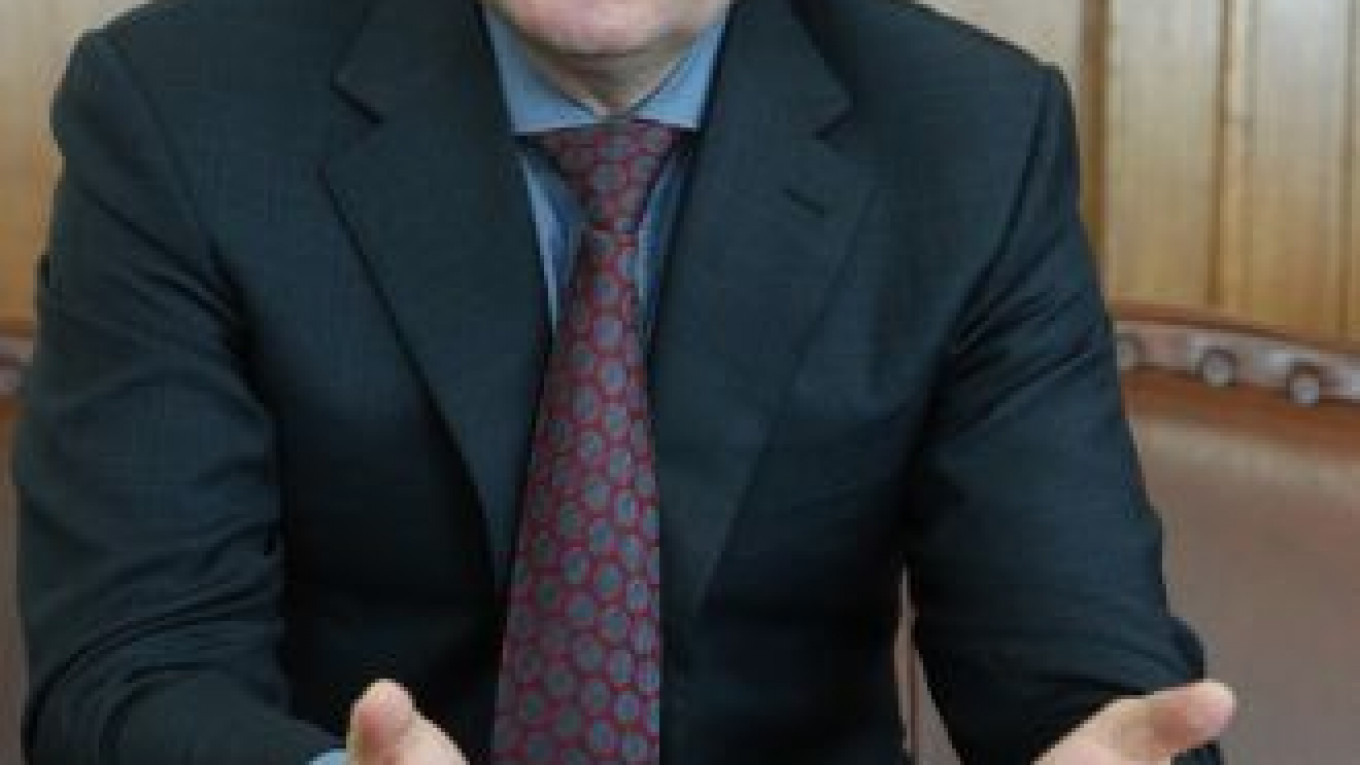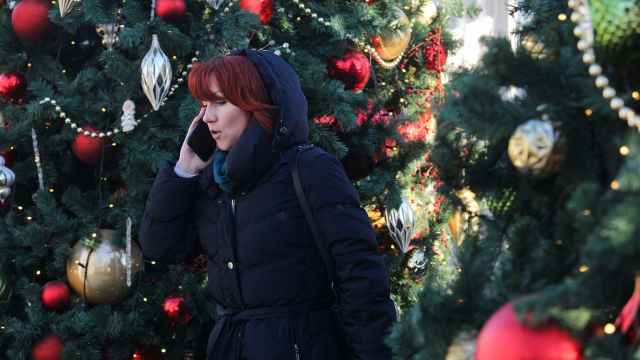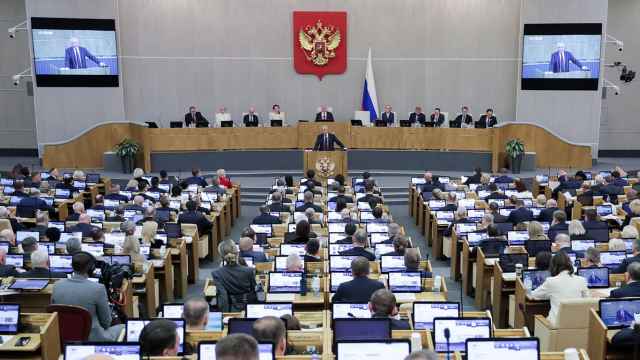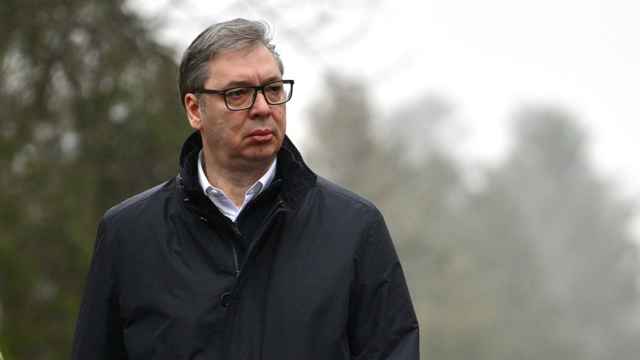Nikolai Fyodorov learned as a boy selling radishes in a street market in the former Soviet Union that when rivals showed up he had to cut prices. Now, as Russia's agriculture minister, he has to instill competition in the nation's 17.8 million farmers while weaning them off subsidies.
Russia will join the Geneva-based World Trade Organization this month after almost two decades of negotiations. Appointed minister in May after 16 years as president of the republic of Chuvashia, Fyodorov, 54, needs to reduce annual state payments to agricultural producers to no more than $4.4 billion by 2018, from an initial limit of $9 billion, under the terms of the WTO accession, and spur private investment.
At stake is Russia's ambition to become a bigger power in world grain exports, where it is currently fourth, according to the International Grains Council. While WTO membership will ease trade barriers on Russian goods from the United States to Europe, farmers are contending with a drought across the main growing areas that may reduce overseas sales by 51 percent this marketing year, the London-based IGC estimates.
"Fyodorov is inheriting a lucrative, but underdeveloped sector," said Jenia Ustinova, an analyst at Eurasia Group, a policy research company based in New York. "He spent his career in the government and is undoubtedly a skilled bureaucrat, but it remains to be seen whether he can guide the industry that is not his technical area of expertise during a particularly challenging time."
The minister needs to increase productivity while at the same time cutting subsidies. Wheat and barley yields have trailed the world average for the past 50 years in Russia and its predecessor, the Soviet Union, USDA data show. The country will slip to eighth among grain exporters in the 2012-13 season, the IGC estimates.
Russian farmers reaped an average 2.26 tons of wheat per hectare last year, compared with 2.94 tons in the U.S. and 5.36 tons in the 27-nation EU, according to the USDA. Russia harvested 24.1 tons of sugar beets per hectare in 2010, compared with 66.9 tons in the EU, 61.9 tons in the U.S. and a world average of 48.9 tons, according to the United Nations' Food and Agriculture Organization in Rome.
Yelena Skrynnik, Fyodorov's predecessor, said in 2009 that Russia might ship as much as 50 million tons of grain by 2025, from 21.8 million tons at the time. Exports sank to 4.4 million tons the following year as drought decimated crops, prompting a year-long ban on overseas sales to contain domestic prices. More dry weather this growing season will probably cut exports to 13.2 million tons from 27.2 million tons, the IGC estimates.
Wolves Hazard
Fyodorov was born in 1958 in what was then the village of Chyodino. It is now part of the town of Novocheboksarsk in Chuvashia, about 644 kilometers east of Moscow. His school breaks in winter lasted for weeks because there were no roads or bridges to get through flooded ravines or snow, and hungry wolves made it too dangerous.
A grandson of kulaks, or wealthy farmers who lost property to the Communists in 1929, Fyodorov got up at 4 a.m. to cut weeds from about a half-hectare of vegetables and other crops, helping his parents meet the quotas required on a collective farm.
"Classmates were playing soccer, volleyball, and I had to toil in the vegetable garden," Fyodorov, a father of two children, said at a meeting with journalists in May. He did learn karate, something he still practices to relax.
Vegetable Plot
His family's vegetable plot was usually the first in the area to produce radishes and cucumbers each year, and young Fyodorov was sent off to sell them in the market. He set his prices a kopek, or 0.01 rubles (3 cents), lower than competitors.
"A queue was building to my table right away, but nobody was taking one kopek of change back," he said. "Even in those days, in the market, I captured the market economy."
Fyodorov took over as agriculture minister on May 21, after four terms as president of Chuvashia from 1994. He was Russia's justice minister from 1990 to 1993. As head of the local government, he brought natural gas to every home, boosted help to farmers and ensured that one in three families was provided with loans to develop private businesses.
His predecessor at the Agriculture Ministry had asked for 2.5 trillion rubles ($77.4 billion) from the federal budget to spend on agriculture over the next years. Fyodorov got 2.3 trillion rubles last month, of which 770 billion rubles will come from regional budgets.
Seeds, Livestock
The money will be spent in areas including agricultural machinery, seeds and livestock breeding. The government said in July that it expects grain production to rise to 115 million tons by 2020, from 94.2 million last year, providing 30 million tons for export. That compares with Skrynnik's forecast in January for shipments of 40 million tons.
Dmitry Bobkov, a spokesman for Fyodorov, said the minister wouldn't be available for an interview.
Being part of the WTO means Russia can ban grain shipments only when there is a threat to national food supplies. That gives it less scope for curbing exports as it did in 2010, when the country endured its worst drought in half a century, INTL FCStone said in a report July 18.
Russia's domestic prices are the highest in five years, in part because dry weather from the U.S. to Europe to Australia drove wheat traded in Chicago, a global benchmark, up 34 percent to $8.77 a bushel this year.
There is drought in Russia's southern, Volga and Siberian districts, which together generated 62 percent of the country's grain last year, state statistics data show.
Import Tariffs
Joining the WTO means Russia will start lowering import tariffs Sept. 1. Global sales to the country of everything from milk to sugar to pigs may increase by about 3 percent to $36 billion within a year, according to the Grain Union in Moscow, which represents the nation's biggest producers and traders.
The expected gain in cargo arrivals will cost the dairy industry 29 billion rubles a year in lost sales, poultry farmers 22 billion rubles, and beef producers 17 billion rubles, according to the Russian Union of Industrialists and Entrepreneurs, which represents more than 120 regional alliances and industry associations.
More than 100 trade restrictions on Russian goods probably will be lifted worldwide, covering everything from metals and chemicals to agriculture, said Maxim Medvedkov, head of the department negotiating trade issues at the Economic Development Ministry.
Agriculture, forestry and hunting generated $58.2 billion last year, or about 3.4 percent of Russia's gross domestic product, state statistics show.
Russia has sought a bigger role in agricultural markets for several years. Then-president Dmitry Medvedev created state trader United Grain Company in 2009, and it was given the target of controlling 16 million tons of Russia's projected 38 million tons of grain exports by 2015.
The government sold 50 percent minus one share of United Grain to Summa Group, the country's largest port operator, for about $183 million this year and will use the money to increase port and silo capacities.
A Message from The Moscow Times:
Dear readers,
We are facing unprecedented challenges. Russia's Prosecutor General's Office has designated The Moscow Times as an "undesirable" organization, criminalizing our work and putting our staff at risk of prosecution. This follows our earlier unjust labeling as a "foreign agent."
These actions are direct attempts to silence independent journalism in Russia. The authorities claim our work "discredits the decisions of the Russian leadership." We see things differently: we strive to provide accurate, unbiased reporting on Russia.
We, the journalists of The Moscow Times, refuse to be silenced. But to continue our work, we need your help.
Your support, no matter how small, makes a world of difference. If you can, please support us monthly starting from just $2. It's quick to set up, and every contribution makes a significant impact.
By supporting The Moscow Times, you're defending open, independent journalism in the face of repression. Thank you for standing with us.
Remind me later.






